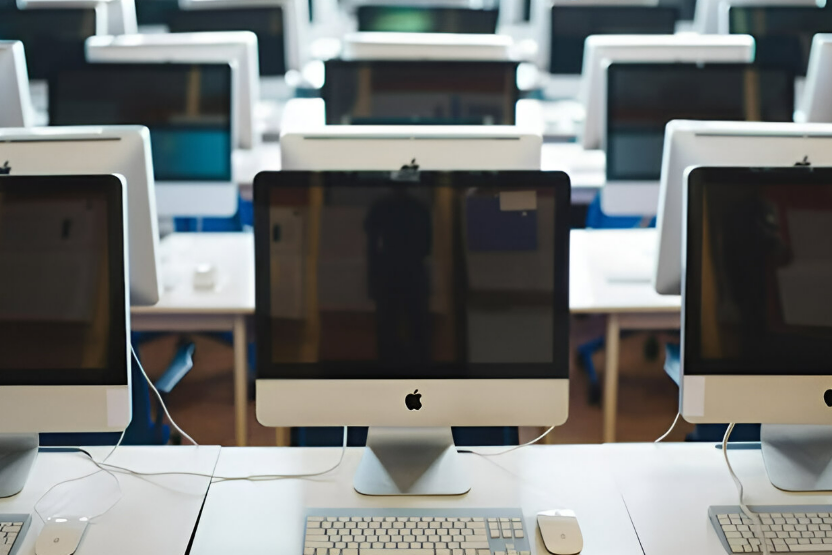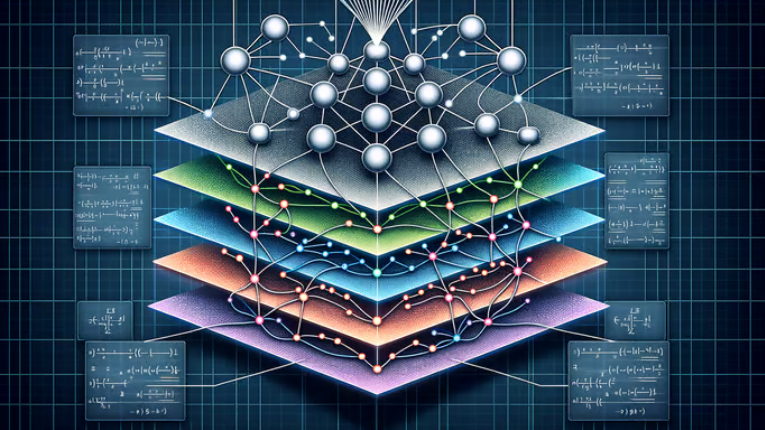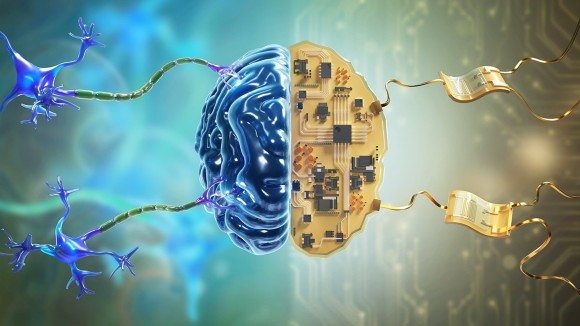Hidden inside your smartphone, your car, and even your coffee maker lies a minuscule yet essential component: the semiconductor chip. These computer chips play crucial roles in orchestrating all digital computations, ranging from simple mathematics to advanced artificial intelligence. But what role do computer chips play in Greeley’s education system? How can chips bring the Greeley community together?
Greeley’s education system heavily relies on chips to power various interactive lessons and digital tools to help students explore subjects beyond the limitations of traditional textbooks. Henry X., a sophomore at Greeley, recalls how the absence of technology can be a real setback during class. “I remember when I broke my computer in the middle of class and couldn’t participate in anything,” he shares. “It made me realize how valuable the functionality of chips is, especially for Greeley’s digital-heavy workload.” Greeley integrates various digital educational tools like Desmos and Gizmos, assigning both classwork and homework through these platforms. “I am in science research,” adds Henry, “and when we do practice presentations, having a high-performance chip-powered device makes it a lot easier to show smooth simulations and data visualization, making it a lot easier to present complex findings.” Chips not only make lessons more interactive but also allow students to delve into complex topics with simulations and visual aids that would be difficult to achieve with traditional resources alone. For Greeley students, the chips that power their devices are more than just components—they are essential enablers of modern learning.
Outside of Greeley, chips enable students to easily check their homework on Canvas, review their schedules on their phones, and access study material on the internet. The vast majority of students juggle demanding schedules filled with clubs, activities, and extracurriculars each day, which consume significant amounts of time—less time to do schoolwork at home. “Computer chips are really important in my educational life. I have swim practice nearly every day and can’t afford to do all of my schoolwork on paper,” says Ian S., another sophomore here at Greeley, “I also often use artificial intelligence to create personalized study tools for tests, and I know how important chips are to power all of that.” Ian’s story highlights a common thread in Greeley, where students increasingly rely on technology to keep up with their academic and extracurricular demands. “Also, when I am struggling to understand any kind of topic for school, I always think to search it up online rather than reach for a textbook. The internet offers way more understandable explanations. I think modern chip technology is just deeply ingrained in my life now,” adds Ian.
Chips are not solely used for educational purposes at Greeley, however. A few years ago, the Sustainability Research Center (SRC), commonly referred to as the school greenhouse, was built in the center of Greeley. The greenhouse’s functionality relies on incredibly advanced chips, monitoring various cooling mechanisms and shades to regulate the internal temperature, sunlight emission, and even humidity for optimal plant sustainability. Outside of maintaining plants, the technology the SRC offers has proven to be an effective location to bring the Greeley community a little closer. Henry shares, “In my opinion, the SRC has actually helped bring the community together. I’ve helped a few SRC members plant specific flowers for holidays before, such as marigolds for Dia de Los Muertos, and it’s really nice seeing so many people come together and enjoy themselves.”
Semiconductor chips play a pivotal role in shaping both the educational and social experiences at Greeley. They enhance interactivity in lessons, provide access to advanced technologies, and help explore complex concepts beyond traditional methods. Historically, schools have relied on textbooks and manual work to function, but as we move towards a digital era, the reliance on computer chips continues to grow. Although some classes at Greeley, such as drawing, still prioritize manual, hands-on learning, the vast majority of classes incorporate chips into their educational curriculum. These tiny yet powerful components not only enable innovative learning experiences but also foster connections within the community, making them an essential part of Greeley’s present and future.







